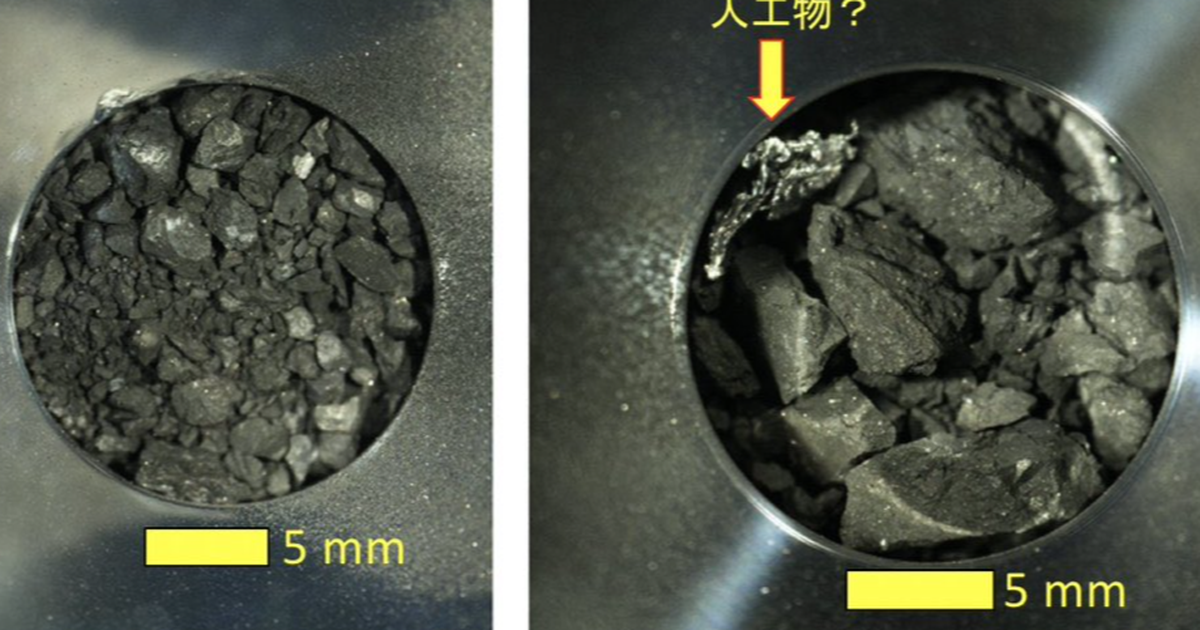
The Japan Aerospace Exploration Agency (JAXA) showed off a collection of samples from the asteroid Ryugu on Thursday following the return of the Hayabusa2 probe.
The curation work for the Ryugu sample is steadily progressing. On December 21, sample catcher chambers B & C were opened and then the contents of chambers A & C were moved to the collection containers in the photo. The largest particles in chamber C are about 1 cm! pic.twitter.com/yWO15cKhG9
— HAYABUSA2@JAXA (@haya2e_jaxa) December 24, 2020
The black, gravelly samples from Ryugu contain a whole bunch of small chips collected from the asteroid’s subsurface. The photo on the right of the capsule C sample has a graphic that points out an artificial, metallic object. JAXA explains that it is possibly aluminum from the probe’s sampler horn that came off of the projectile explosive used to get below the surface.
Samples from chamber A were also shared earlier in December, giving another angle on the space rocks.
Normally, space rocks like these are collected after they enter Earth’s atmosphere at surface-scorching speeds. These samples from Ryugu are the first ever that can be examined without being damaged during entry, which is key to getting a clear look at and better understanding these celestial rocks, according to a report from NPR.
Asteroids like Ryugu, which is about a kilometer in diameter and orbits our sun, could give us insight into the formation of planets and the early history of solar systems like ours.
